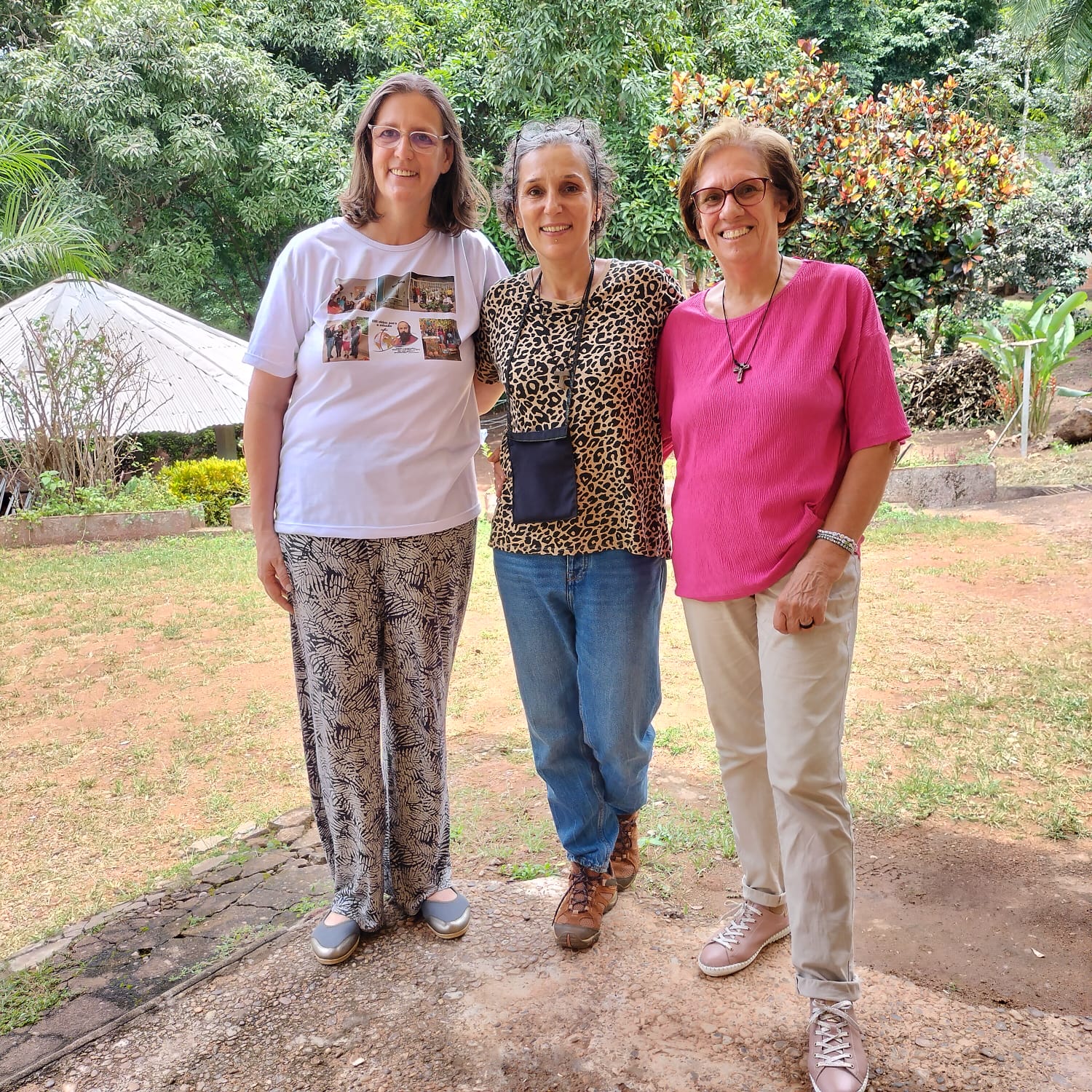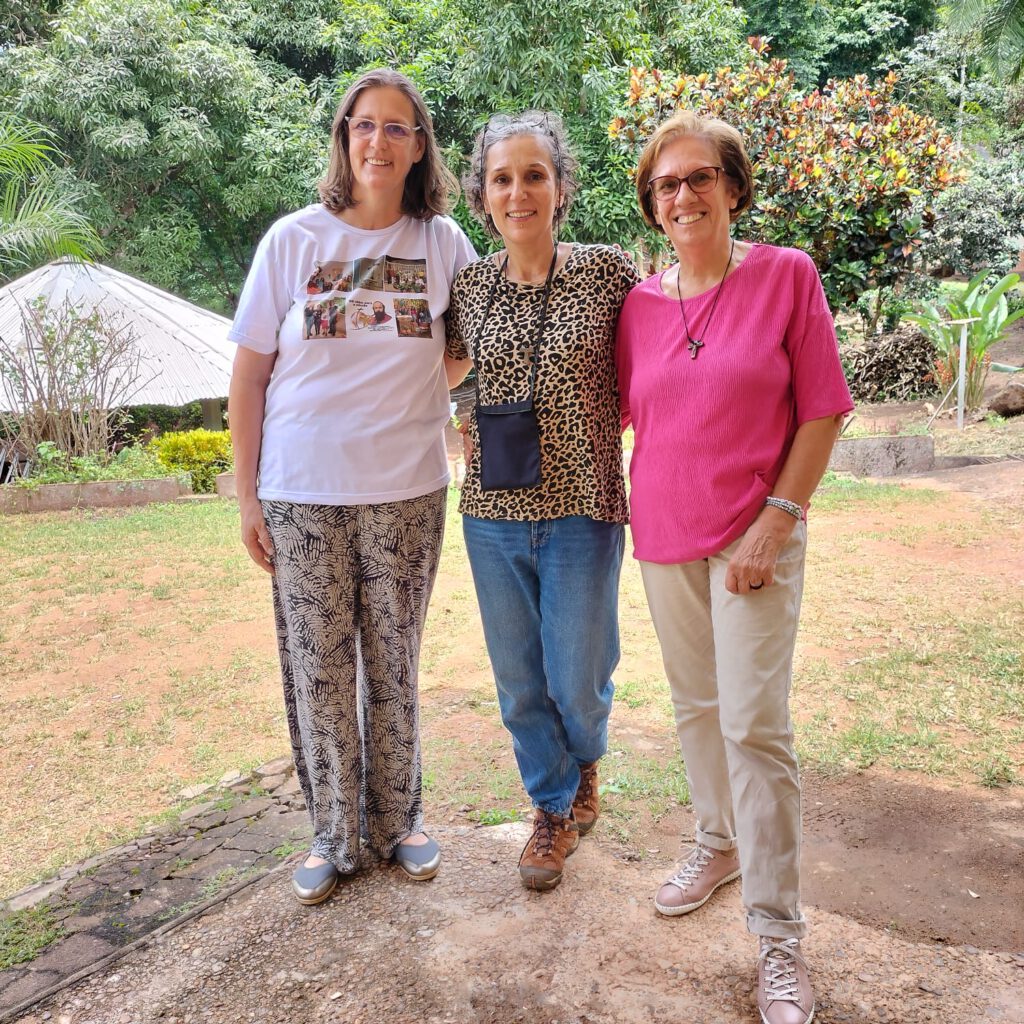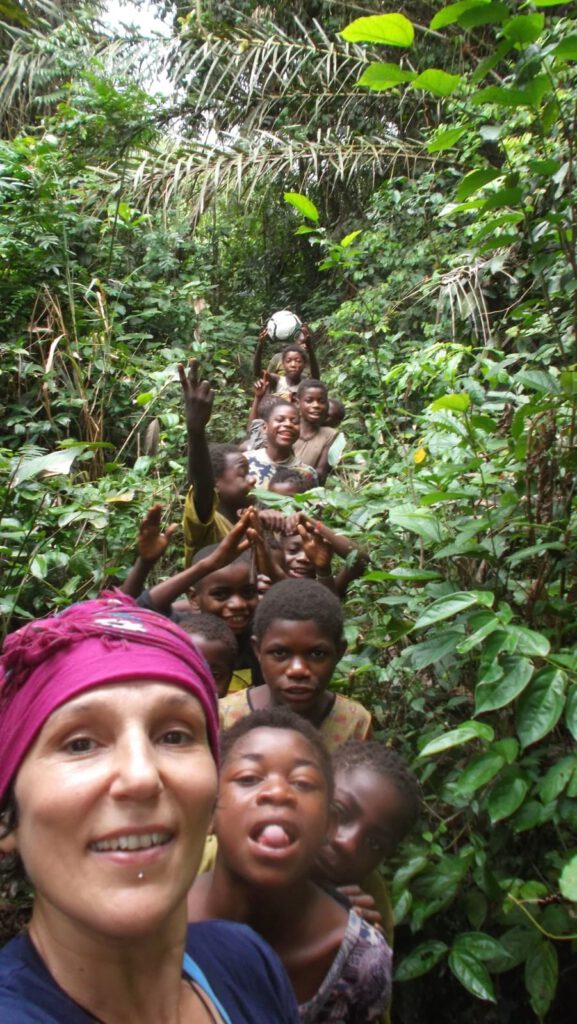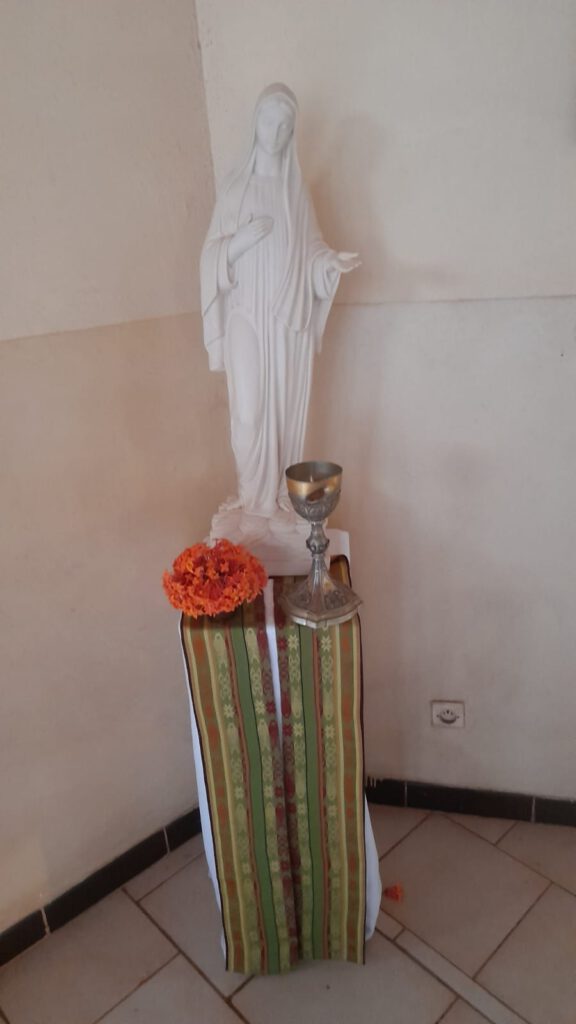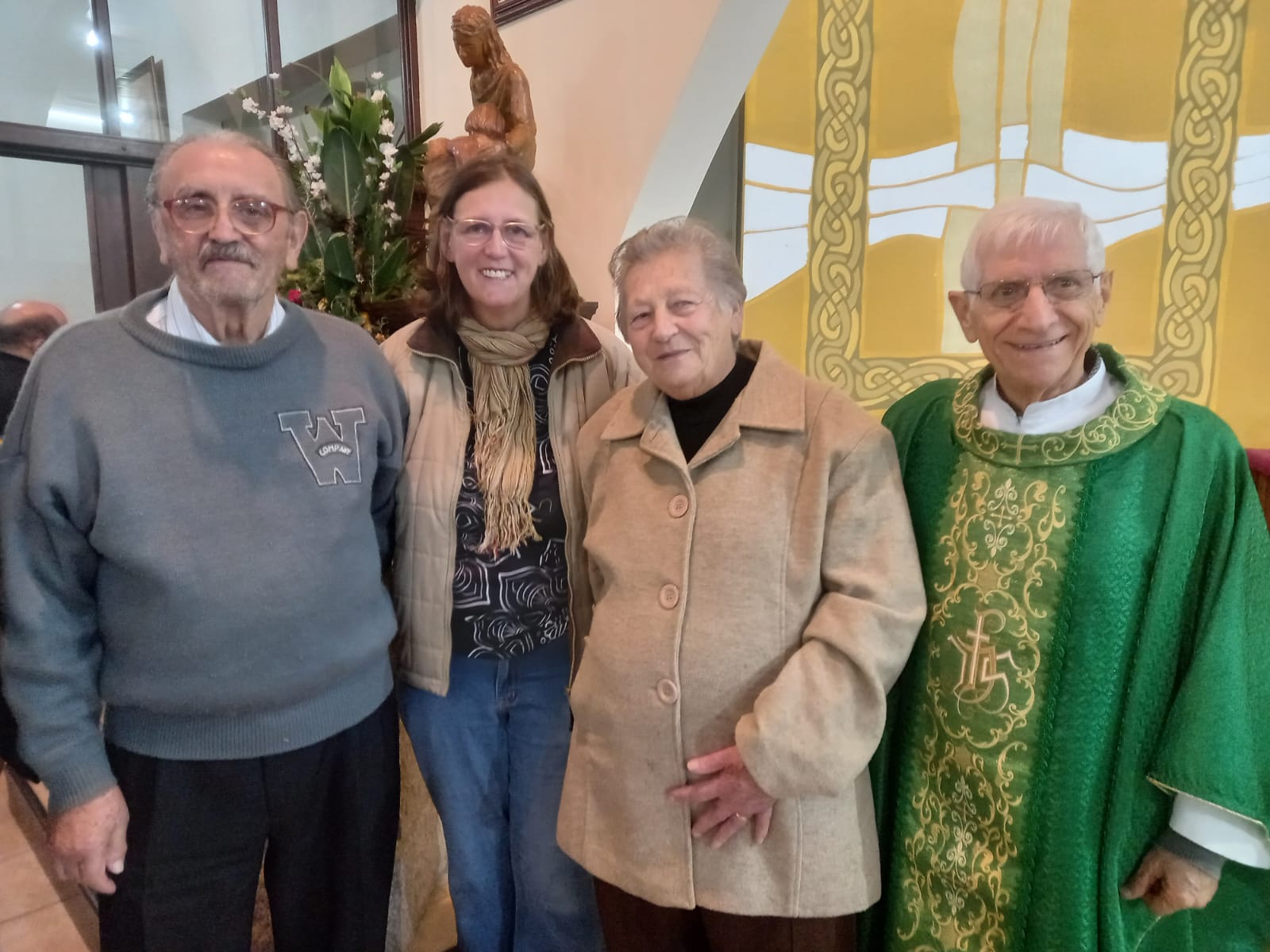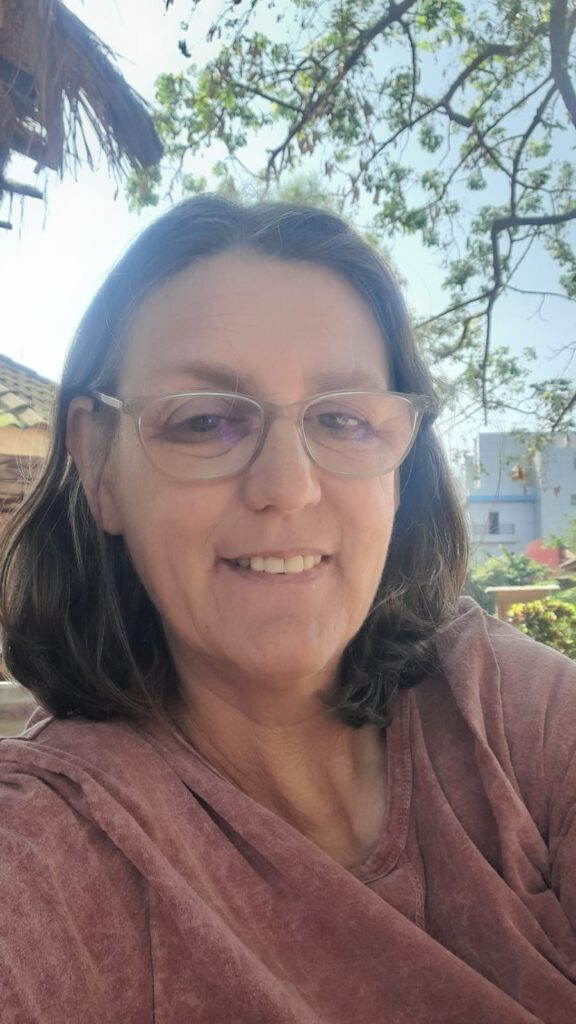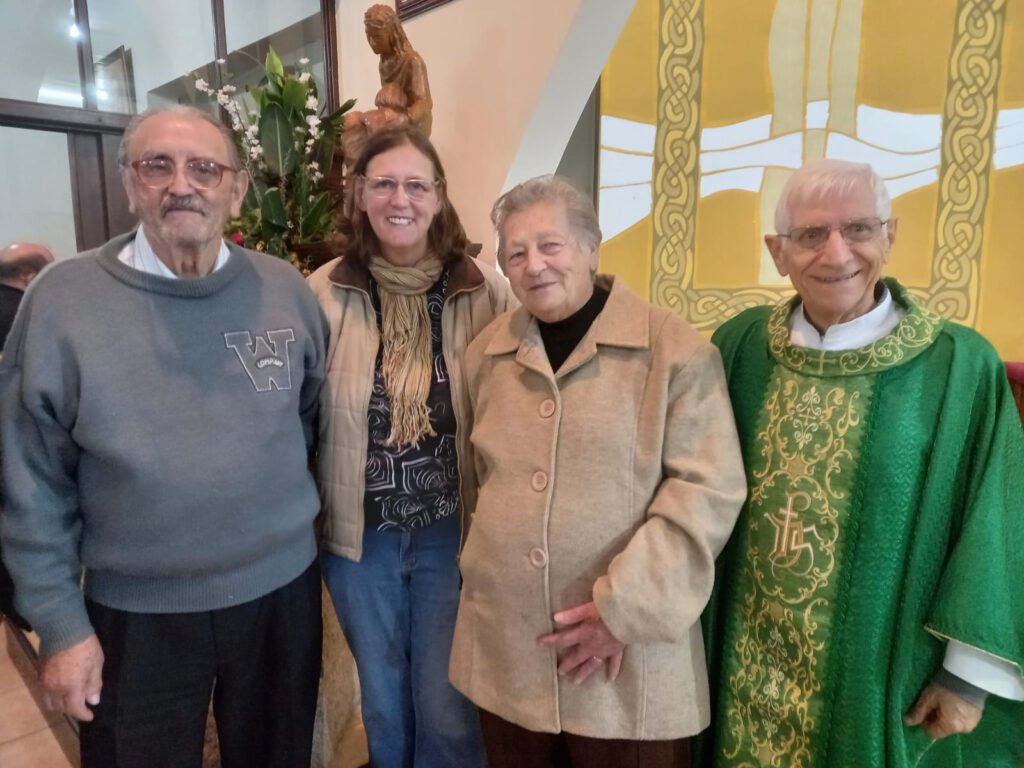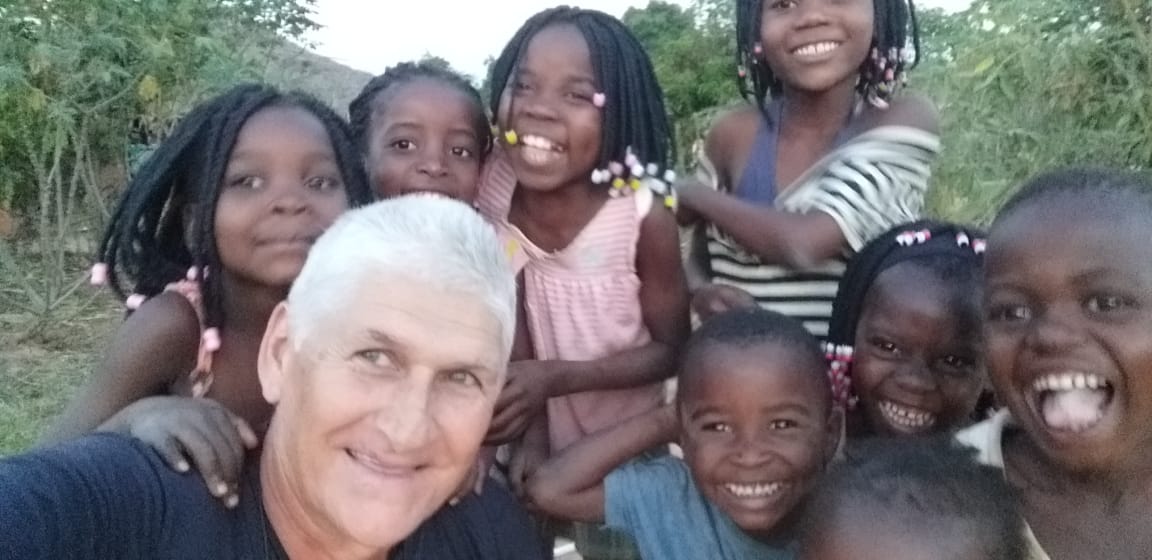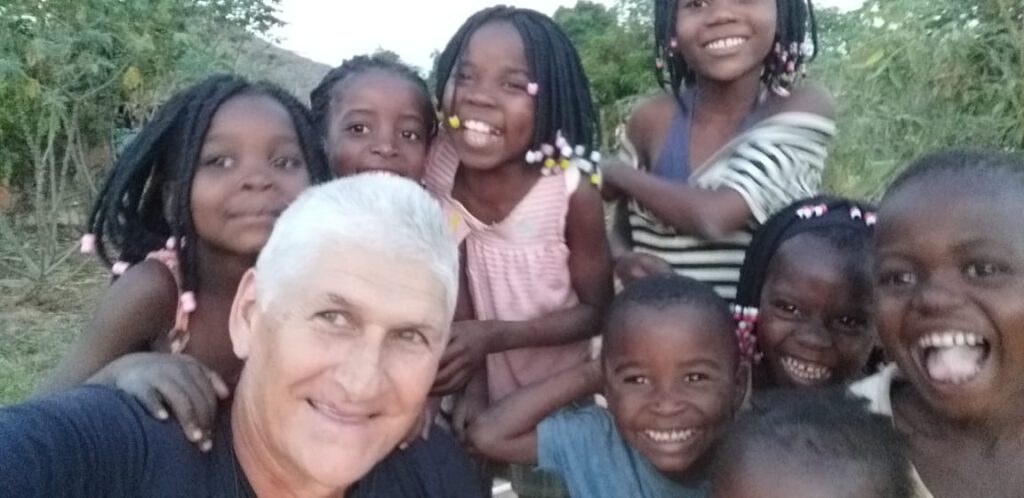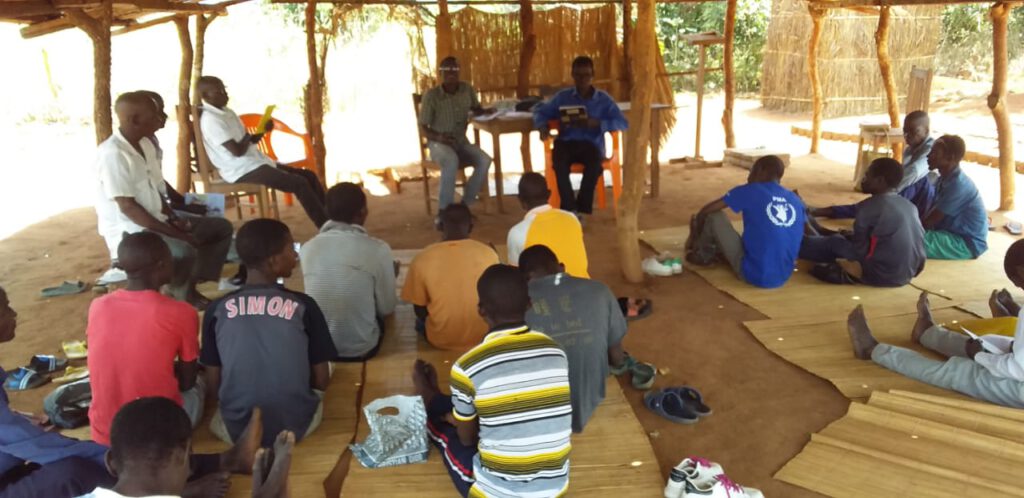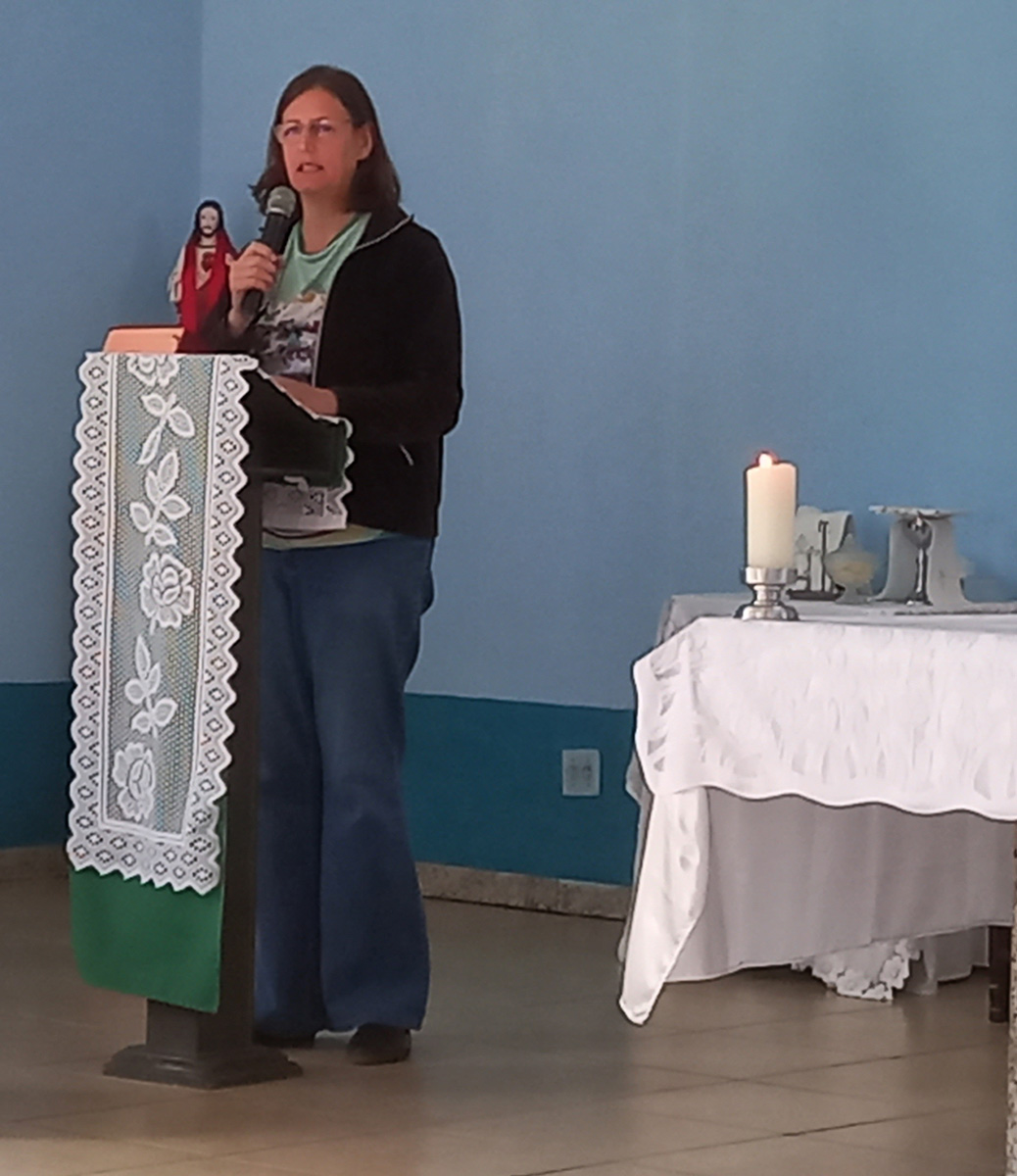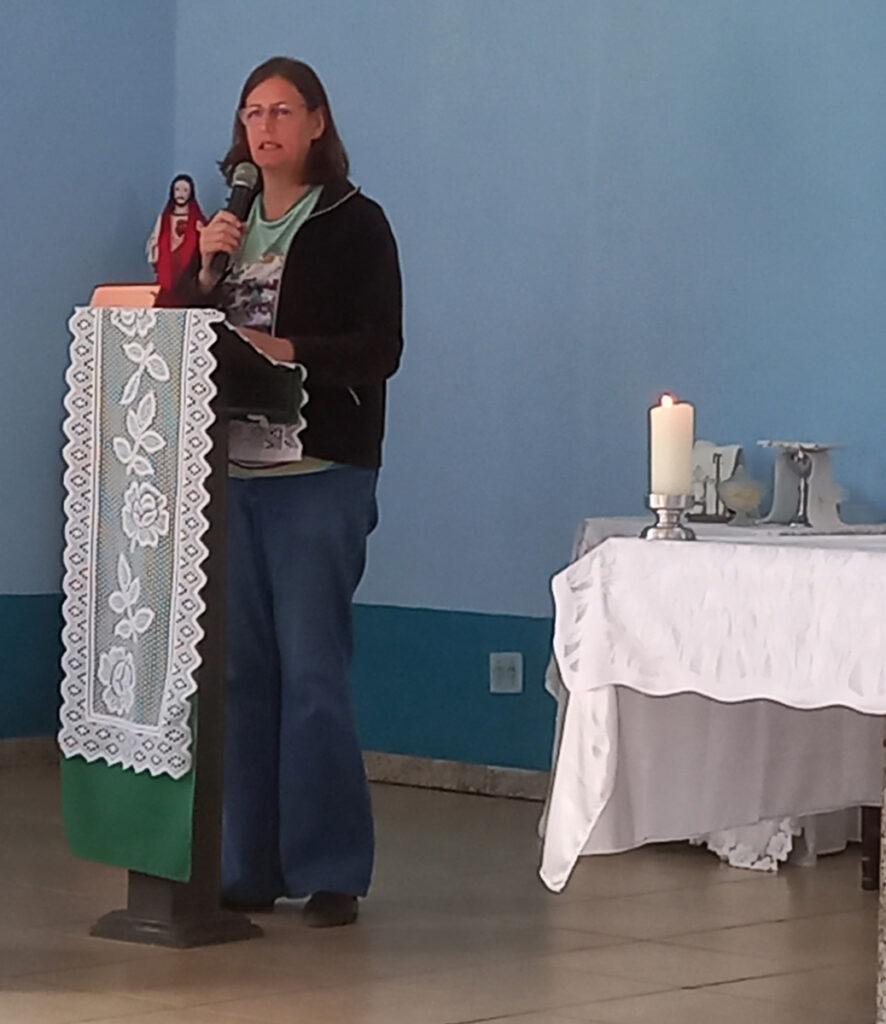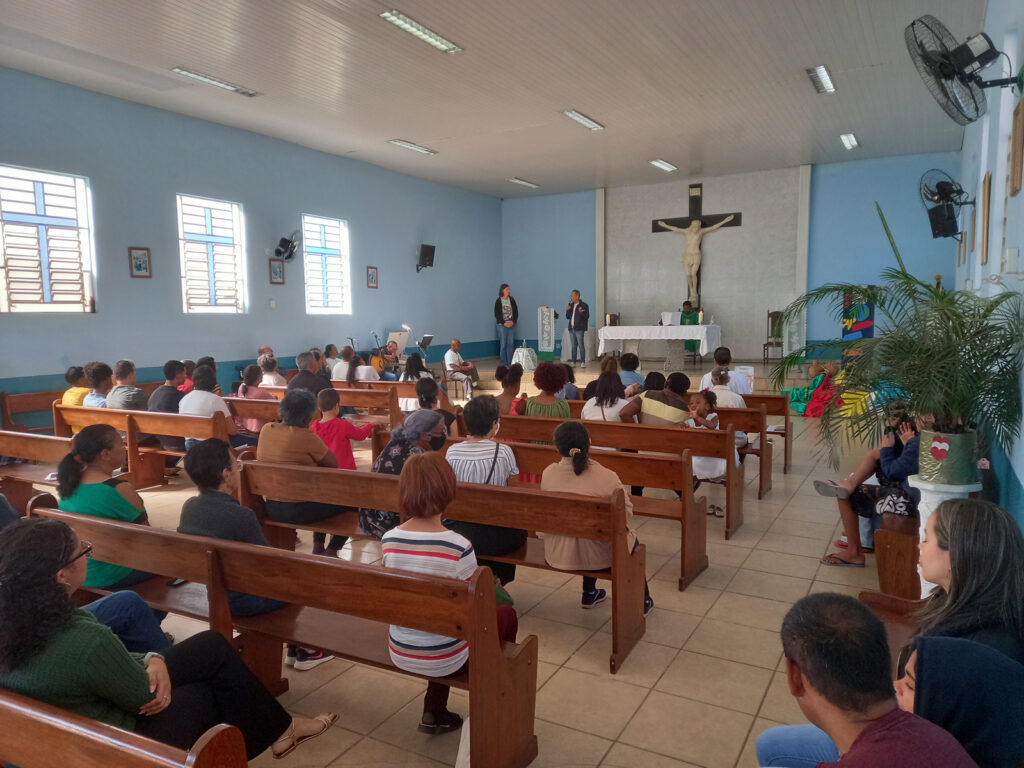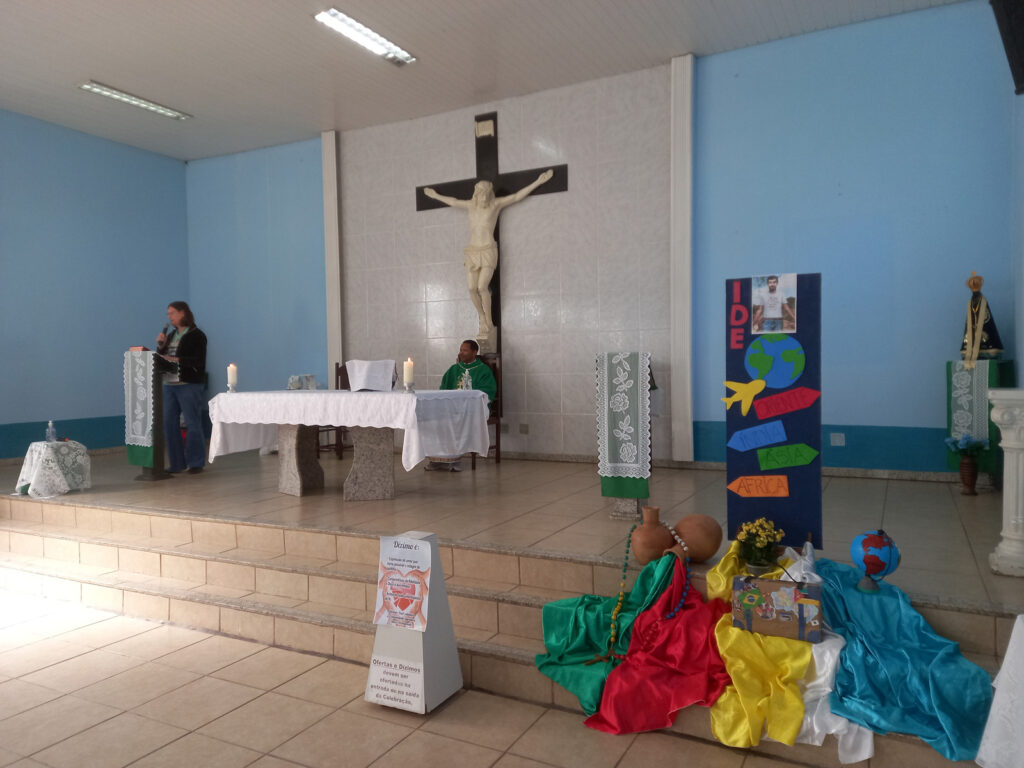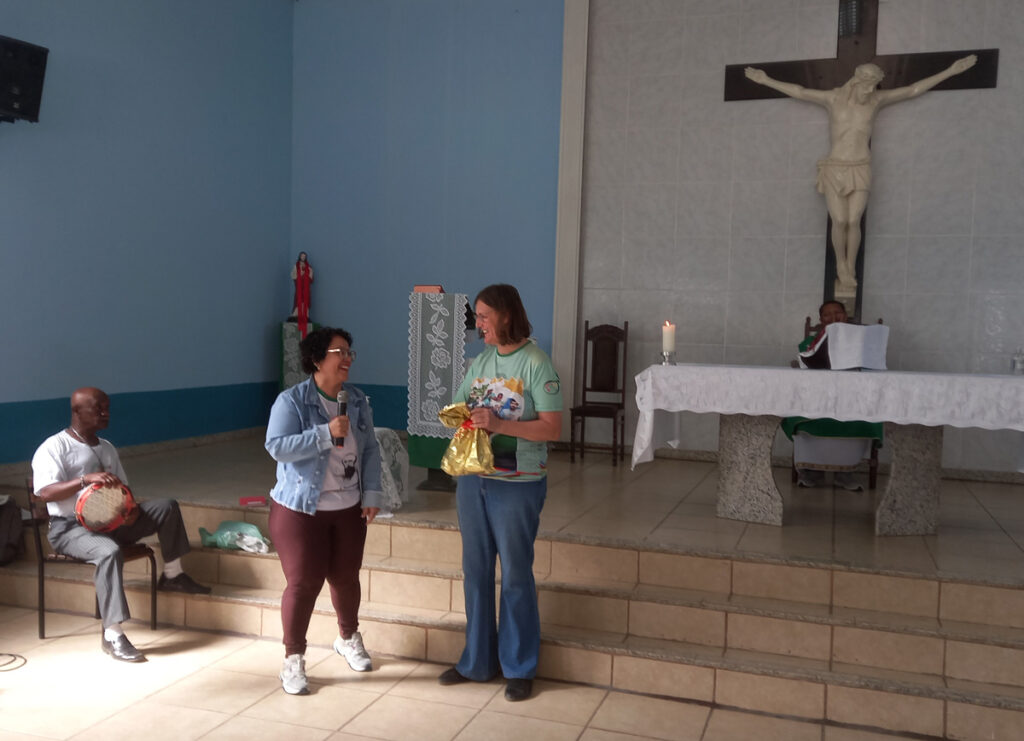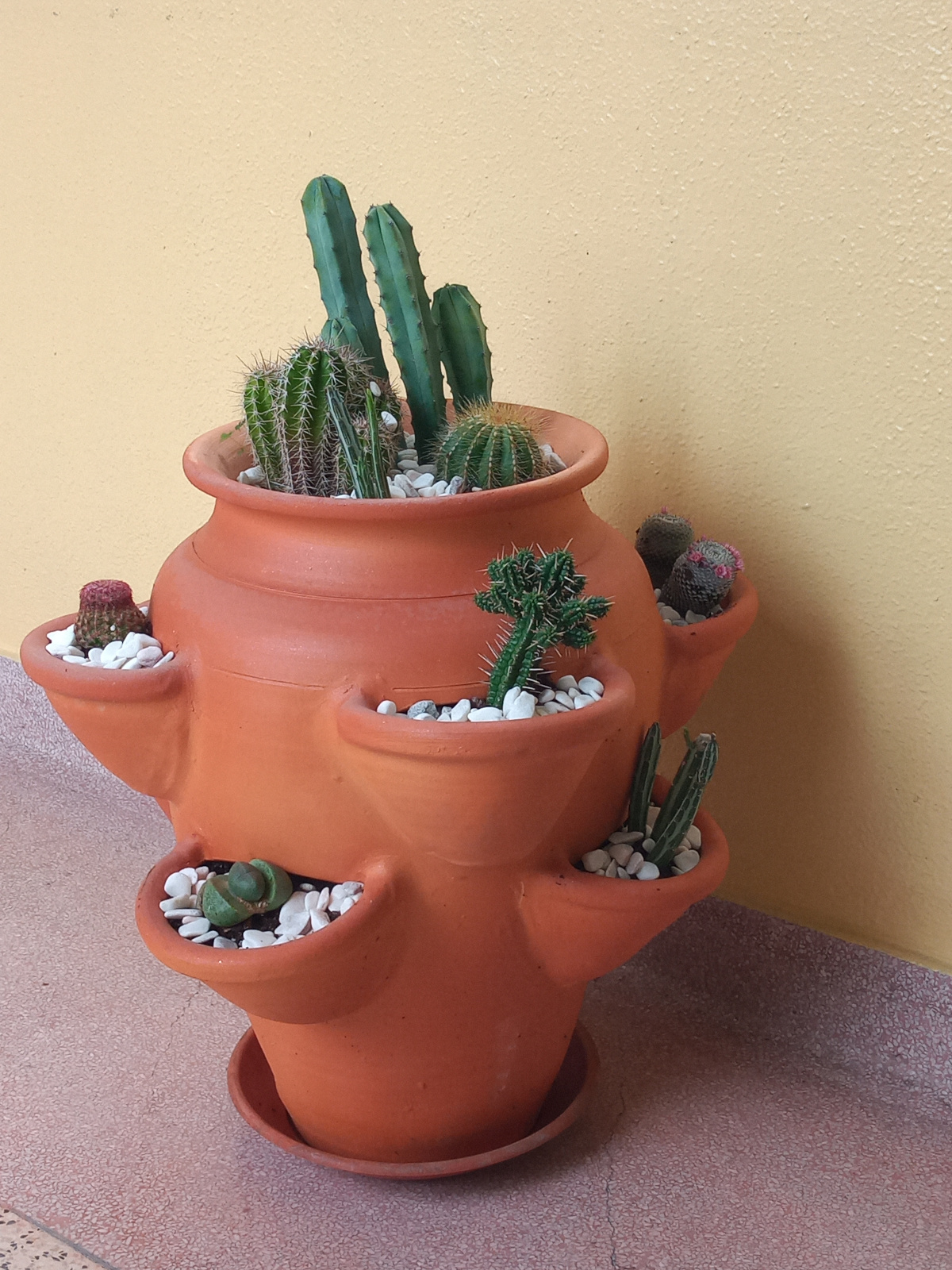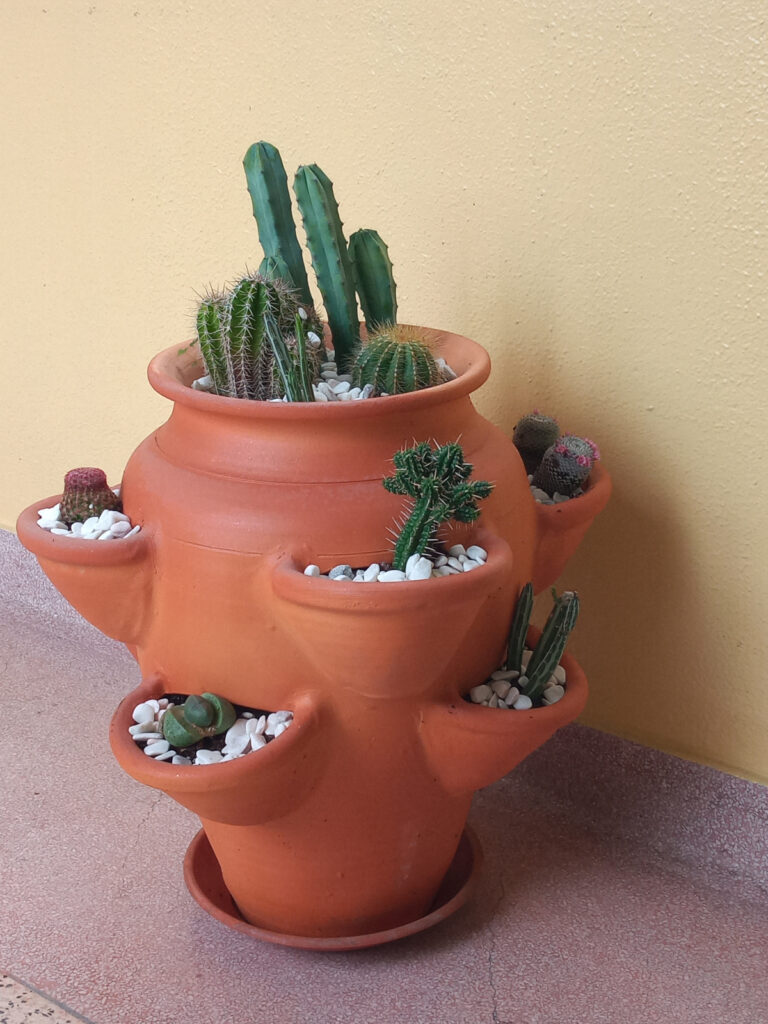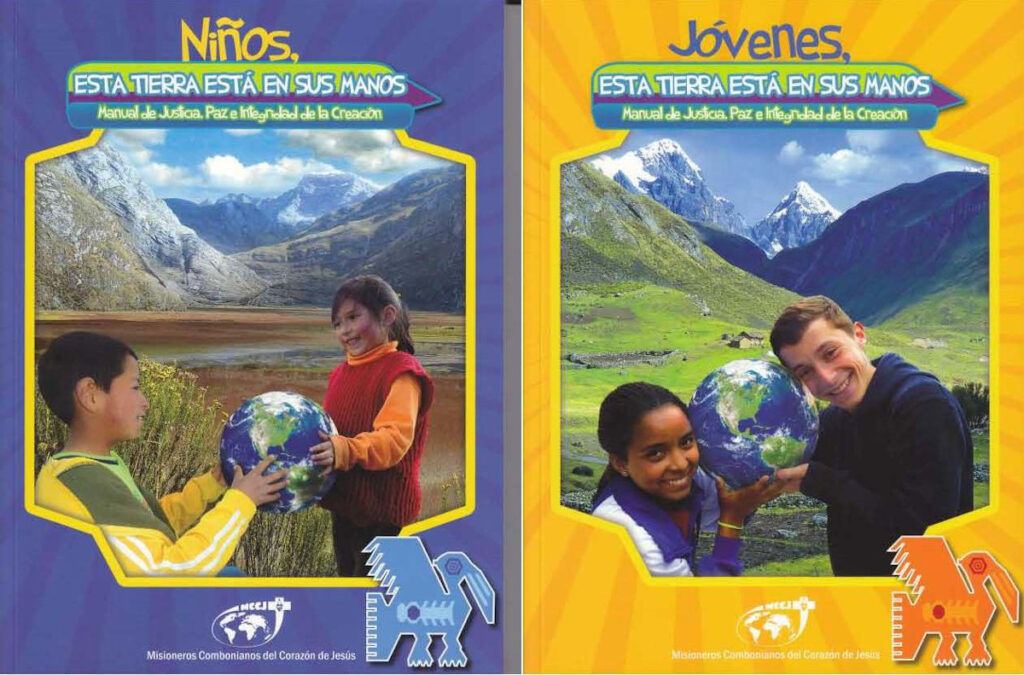“Enlarge the space of your tent, extend the ropes, strengthen the stakes.” Is 52:2
I have completed my first month in the Central African Republic (CAR), which is located in the heart of Africa! So I can only share my first impressions!
I’m in the capital, Bangui, to improve my French and learn Sango, as these are the official languages of the country. The whole country has approximately 6 million inhabitants! It is facing serious economic problems, in education, health and especially a lack of work and prospects for young people. It’s a period of reconstruction and peace remains very fragile here.
In the first few days I had the opportunity to travel to Mongoumba, where the International CLM Community is located. It’s 160 km away from the capital and we traveled this stretch in about 6 hours due to the rain and the road conditions.
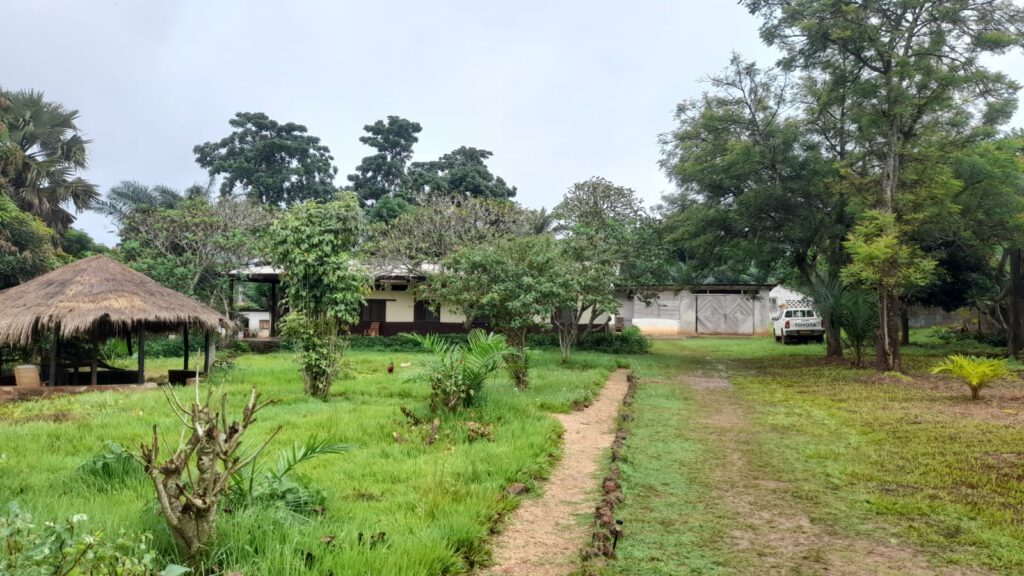
View of the CLM House in Mongoumba – RCA
It was a great gift to be able to take part in the ordination to the diaconate of Ezra, who made his perpetual vows in the Congregation of the Comboni Missionaries and was ordained as a deacon. It was a beautiful, joyful Mass with an offertory that I will never forget. When the community came in dancing and offering gifts to the newly ordained deacon, everything from a goat to a handful of peanuts or some bananas, it was very meaningful. I think it was my first four-hour Mass and I didn’t even notice the time passing.
We haven’t yet defined what we’re going to do, because the community has just come together with the arrival of Elia. The work of the CLM has been in health, as we are responsible for the Da ti Ndoye Center – House of Love, which is a small rehabilitation center and a dispensary; in the area of education, with the accompaniment and coordination of the parish schools, and in pastoral care and support for the Aká people.
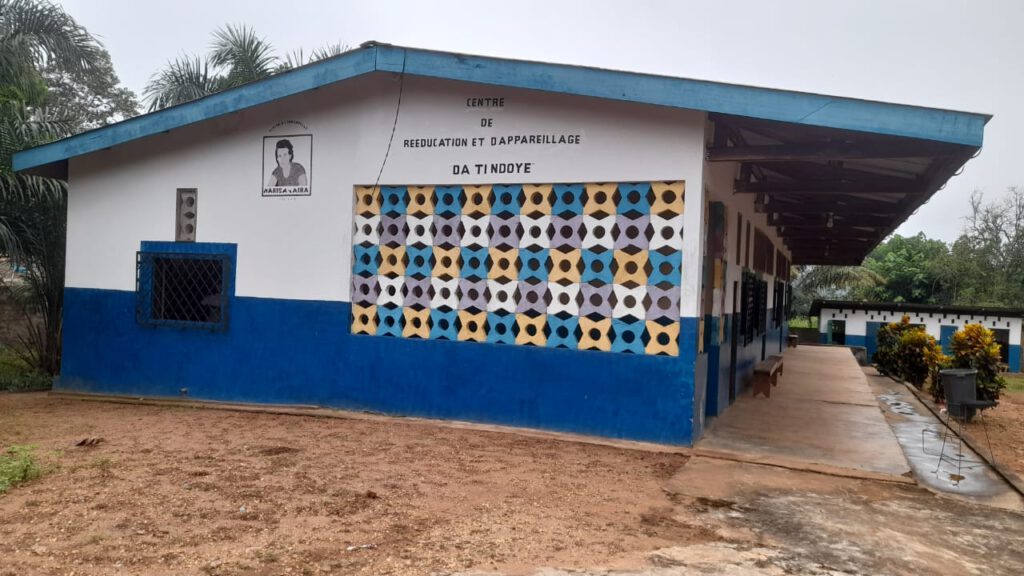
Rehabilitation center and care for the Aka people
Cristina Sousa – Portuguese CLM with the Aká children in Mongoumba/RCA
While in Bangui, I would like to highlight two important experiences among many:
– The visit to the Comboni parish of Our Lady of Fatima, located in a very conflictive area. During the intense period of the war, many people were refugees and some died in a clash, including a diocesan priest. People suffered a lot and the consequences are still present. Today there is a Formation Center in Memory of the Martyrs and there is a lot of training in religious tolerance, non-violent communication, accompanying people with war traumas, … The chapel of Casa Comboni keeps a chalice that was in the sacristy at Fatima and was hit by a bullet.
Another highlight is the testimony of the life and donation of Fr Gianantonio Berti, an Italian who arrived here in 1967. It was a gift from God to spend these days with Father Berti – an 86-year-old MCCJ with 46 years of presence in the Central African Republic. He is a very generous person, whom people love and respect. He communicates very well with the people, knows the language very well and is very close to the people of the region.
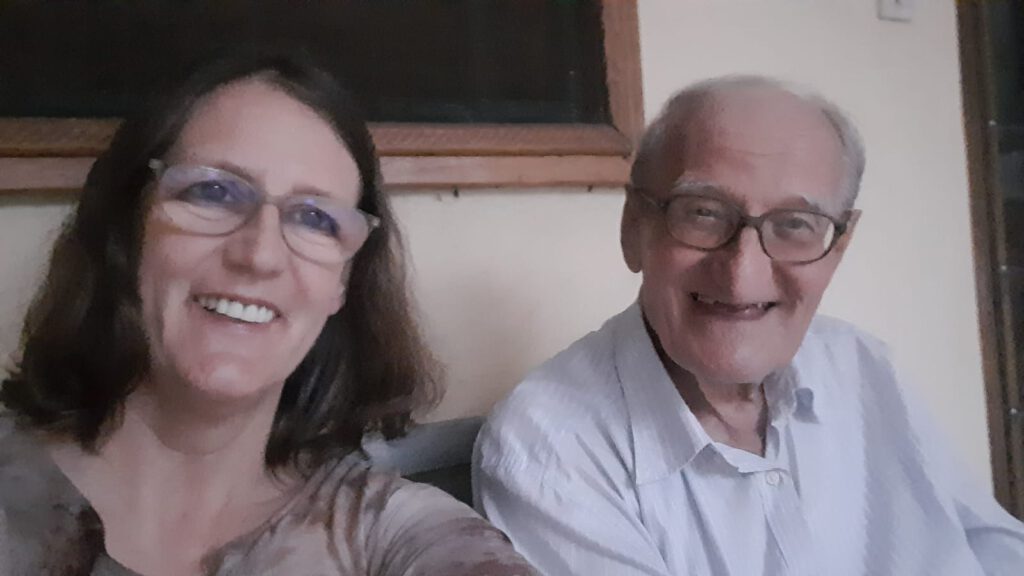
Cristina and pe Berti who traveled to Italy,
It hasn’t been easy, at this point in my life, to learn another language, in this case two other languages, and the most important thing would be to learn the third, which is Aka. But I’m very inspired by Cristina Souza – CLM who is here and she manages to connect with people. I’m working hard to improve my communication skills and to be with these people who are so welcoming. Despite the difficulties, I’m very happy to be here.
May we have the grace of the disciples on the way to Emmaus to meet the Risen Lord in the sharing of life and bread! Hearts burning and feet on the road! United in prayer!
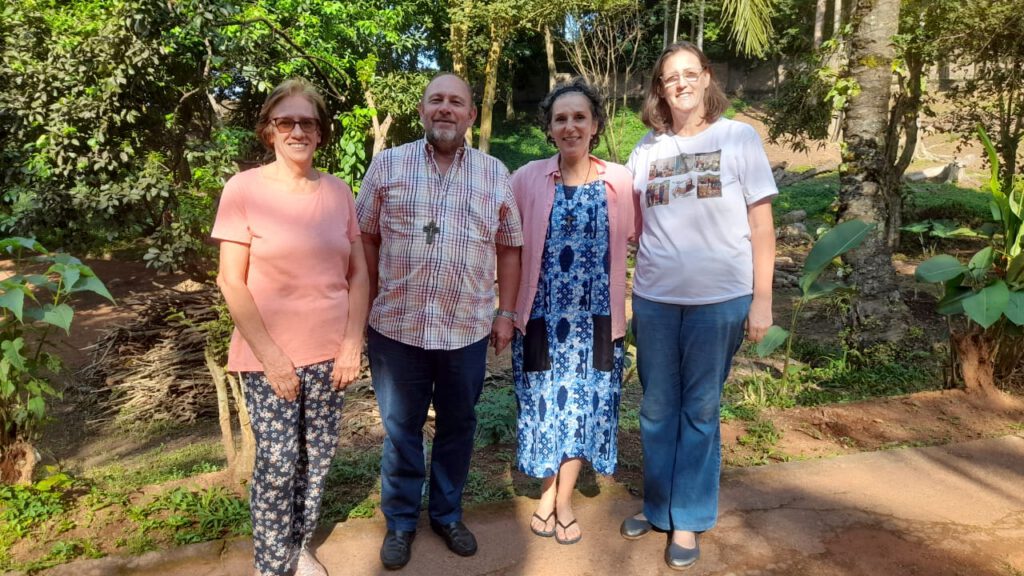
CLM Community with Monsignor Jesus – Bishop of M’Baiki – Diocese where we are present.
Cristina Paulek, CLM




